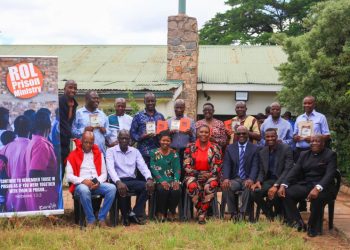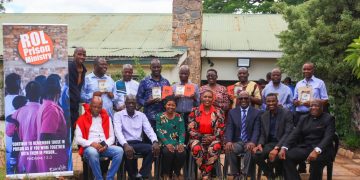According to the World Health Organisation (WHO), researchers estimate that there are 1.3 to 4.0 million cases and 21,000 to 143,000 deaths from cholera worldwide each year.
The Zimbabwe Council of Churches (ZCC), through its Cholera Emergency Response Program, recently provided essential hygiene supplies to 65 women in Hopley, Harare South, as a way of preventing waterborne diseases.
These Non-Food Items (NFIs) have gone a long way in empowering households to practice safe hygiene, store and treat water effectively, and reduce exposure to waterborne diseases.
In an update regarding the initiative, ZCC in a post said, “This activity is layering on other activities that the project has already done including, training of health care workers on cholera case management and control, training of interfaith leaders on proper health and hygiene practices to prevent cholera, conducting sensitization and awareness campaigns in church and Mosque.
During the outreach, Women’s Ecumenical Fellowship Chairperson Mai Mangena encouraged the women to become health champions in their homes and communities. She emphasized the pivotal role women play in driving behavioral change and safeguarding family well-being through hygiene leadership,” reads the update
With support from Diakonia, ZCC continues to extend interventions to Harare South, Mazowe, and Bindura, complementing government efforts and protecting lives through practical action and community empowerment.
The number of cholera cases reported to the WHO has continued to rise in recent years. In 2023, 535,321 cases and 4007 deaths were reported to the WHO from 45 countries. The discrepancy between these figures and the numbers estimated by researchers is likely due to limited surveillance systems and cases not being recorded out of fear of repercussions for trade and tourism.



























